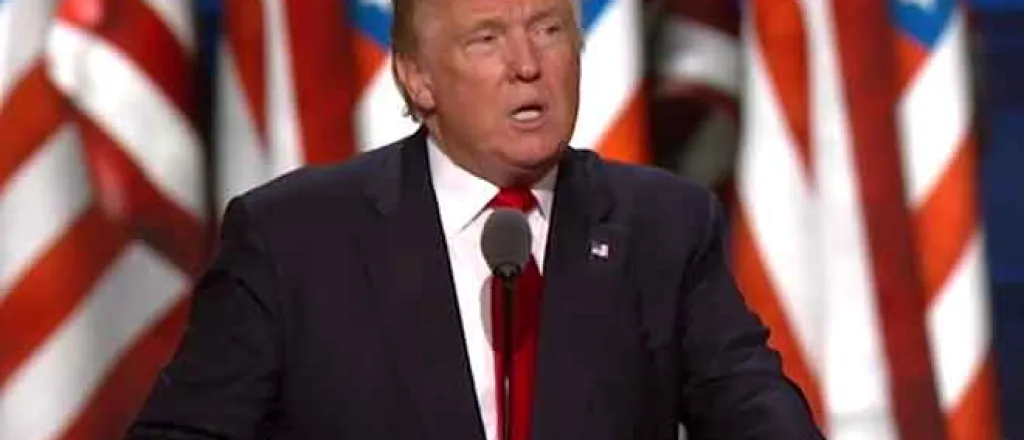
Trump’s January 6 indictment annotated for Colorado
(Colorado Newline) The grand jury indictment that charges former President Donald Trump with four felony counts related to the Jan. 6 insurrection tells an appalling story of corruption and criminality at the highest levels of the federal government.
Connections to Colorado appear throughout the 45-page document.
The Colorado connection that most frequently occurs in the indictment involves John Eastman, the Trump attorney who devised the plan to obstruct congressional certification of electoral votes on Jan. 6, 2021.
Eastman at the time was a Benson Center visiting scholar at the University of Colorado Boulder, and, though he lives in New Mexico, his association with Colorado is substantial. He represents the Colorado Republican Party in a lawsuit the GOP hopes will close Colorado’s primaries to unaffiliated voters. He and his wife, Elizabeth, who was a senior scholar in residence at CU during John Eastman’s tenure at the school, have visited Colorado for other political events since Jan. 6.
Other Colorado figures are implicated in the document. Jenna Ellis, a Trump lawyer who until recently lived in Colorado, plays an indirect role in several passages of the indictment. The document alludes to Dominion Voting Systems, which is based in Denver and became the subject of false suspicions partly due to baseless accusations from a Colorado podcaster.
Beyond the indictment’s narrative, the corrosive effect of the crimes it alleges continues to threaten democracy in Colorado, where Trump’s “stop the steal” lies retain currency with a cohort of leaders. In March, the state Republican Party chose an election denier as its chair. Rep. Lauren Boebert, the most prominent Republican in the state, who helped encourage the Trump mob on Jan. 6, took recent news of charges against Trump as a chance to redouble her support for him.
The indictment demonstrates that misdeeds in the White House begot bad behavior throughout the country, and it highlights government’s vulnerability to democracy’s enemies, including in Colorado.
Below are Colorado-related annotations on the indictment, which appears in full at bottom of the story.
The “Conspiracy Against Rights” count alleges a violation of Title 18, United States Code, Section 241, which is derived from the Enforcement Acts of the 1870s. The acts were a direct response to the rise of the Ku Klux Klan. A similar, civil violation is alleged in a lawsuit against several election deniers in Colorado who, like Trump, baselessly rejected the 2020 election results.
The indictment cites six co-conspirators. Though the document doesn’t name them, their identities have been ascertained by other means. “Co-Conspirator 2” is Eastman, according to Eastman’s own lawyer. Eastman is facing disbarment in California related to his Jan. 6-related behavior. On Friday, he filed a motion to pause that proceeding on the grounds that he is likely to be indicted along with Trump on criminal charges for Jan. 6. Federal District Court Judge David Carter wrote last year that it was “more likely than not that President Trump and Dr. Eastman dishonestly conspired to obstruct the Joint Session of Congress on January 6th” and that their plot to overturn the election was “a coup in search of a legal theory” that “spurred violent attacks on the seat of our nation’s government.”
Eastman, as “Co-Conspirator 2,” appears frequently in the document. His presence in the indictment approaches that of Trump himself and “Co-Conspirator 1,” widely understood to be Trump attorney Rudy Giuliani.
The “certain voting machine company” appears to be a reference to Denver company Dominion Voting Systems. According to the indictment, Trump’s executive assistant sent to “Co-Conspirator 3,” believed to be Trump attorney Sidney Powell, a document that criticized the company with an instruction to include the criticisms in a lawsuit. Powell did so on Nov. 25, 2020, in a complaint against Georgia Gov. Brian Kemp. The lawsuit falsely claimed that Dominion machines in Georgia were at the heart of “massive election fraud.” The court quickly tossed the suit. Some conspiracy theories about Dominion originated in early November 2020 with false claims made by Colorado podcaster Joe Oltmann.
Giuliani appeared on Dec. 3, 2020, before a subcommittee of the Georgia State Senate “with the intention of misleading state senators into blocking the ascertainment of legitimate electors.” Ellis accompanied Giuliani at the presentation, as she did for similar purposes in other states where Trump falsely claimed election fraud occurred. Ellis was ordered to testify in an investigation by Fulton County District Attorney Fani Willis into the Trump team’s activities in Georgia. The investigation is widely expected to result in further criminal charges against Trump, as well as others. A Colorado judge censured Ellis in March for misconduct, and she admitted that multiple statements she made about the presidential election being stolen were “misrepresentations.” Eastman gave a lengthy presentation during the subcommittee hearing and answered questions.
Trump called Georgia Secretary of State Brad Raffensperger on Dec. 8, 2020, the indictment recounts, “to pressure him to support an election lawsuit filed in the Supreme Court by another state’s attorney general.” On the previous day, Ken Paxton, attorney general of Texas, filed a lawsuit in the U.S. Supreme Court seeking to block electoral votes in four battleground states, including Georgia. The lawsuit rested on baseless claims of fraud, and Georgia officials dismissed it. But the lawsuit was notable in Colorado, because two of the state’s Republican U.S. representatives — Ken Buck and Doug Lamborn — signed onto it.
The indictment makes clear that top Trump allies themselves thought claims of election fraud were lies. This passage quotes a senior campaign adviser describing such claims from Trump’s “Elite Strike Force Legal Team” as “conspiracy s*** beamed down from the mothership.” The Elite Strike Force Team comprised Giuliani, Powell and Ellis. Ellis herself dubbed the trio the “Elite Strike Force Team” during a Nov. 19, 2020, press conference.
On Nov. 25, 2020, Giuliani gave a presentation to Pennsylvania state lawmakers. Ellis was at Giuliani’s side and also spoke at the event. A Trump campaign staffer said there was “no way to defend” their false assertions about the election, according to the indictment.
This appears to be a reference to Eastman’s notorious “coup memo,” a six-point plan to overturn the election on Jan. 6.
Eastman’s response to a senior Trump adviser who warned that he was going to “cause riots in the streets” appears to condone violence, according to the indictment. As recently as this month, Eastman said Democrats represent an “existential threat” to the nation and suggested the Declaration of Independence makes it a duty to “abolish the existing government” in such cases.
Below is the entire indictment.
Colorado Newsline is part of States Newsroom, a network of news bureaus supported by grants and a coalition of donors as a 501c(3) public charity. Colorado Newsline maintains editorial independence. Contact Editor Quentin Young for questions: info@coloradonewsline.com. Follow Colorado Newsline on Facebook and Twitter.
















